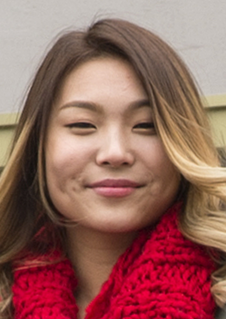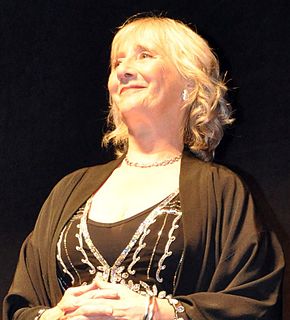A Quote by Brett Kavanaugh
When people ask what it's like to be an only child, I say it depends on who your parents are. I was lucky.
Related Quotes
Count yourself lucky. I watched my entire family as they were eaten alive by the very pack of animals you have downstairs in your house with your child. The blood of my parents flowed from their bodies through the floorboards and drenched me while I lay in terror of being torn apart by them. I was only a year older than your child when it happened. My parents gave their lives for mine and I watched as they gave them. So you’ll have to excuse me if I have a hard time thinking good of any animal except those who are dead or caged. (Angelia)
Every child has to disobey the father. Unless a child disobeys the father he never becomes mature. It is nothing, original, it is very simple and natural. It is very psychological. There comes an age when every child has to say NO to the parents. If he does not say no to the parents he will not have a spine; he will be spineless. If he cannot say no to the parents, he will be a slave his whole life. He will never attain to individuality.
Living in a place like Pakistan, very often you meet people who are migrating abroad. And sometimes you'll ask their parents, you know - you didn't try to stop them? Like, why didn't you say, don't go - I'll miss you? Stay with me. And, you know, people say, well, it's best for them. They have to go. And parents, you know, take on that sadness because they know it's better for their children if they leave.
Ask your child for information in a gentle, nonjudgmental way, with specific, clear questions. Instead of “How was your day?” try “What did you do in math class today?” Instead of “Do you like your teacher?” ask “What do you like about your teacher?” Or “What do you not like so much?” Let her take her time to answer. Try to avoid asking, in the overly bright voice of parents everywhere, “Did you have fun in school today?!” She’ll sense how important it is that the answer be yes.
In considering the ledger equal, understand the greatest gift you have given your parents is the opportunity to raise you. The things a child gets from parents can't compare to the things a parent gets from raising a child. Only by experiencing this can you understand the degree to which children give meaning to parents' lives.
Make up your mind to this. If you are different, you are isolated, not only from people of your own age but from those of your parents' generation and from your children's generation too. They'll never understand you and they'll be shocked no matter what you do. But your grandparents would probably be proud of you and say: 'Theres a chip off the old block,' and your grandchildren will sigh enviously and say: 'What an old rip Grandma must have been!' and they'll try to be like you.
A child is not a Christian child, not a Muslim child, but a child of Christian parents or a child of Muslim parents. This latter nomenclature, by the way, would be an excellent piece of consciousness-raising for the children themselves. A child who is told she is a 'child of Muslim parents' will immediately realize that religion is something for her to choose -or reject- when she becomes old enough to do so.
I don't like the way most people think. It's imprecise. I find that when parents ask me questions, they ask very imprecise questions. They say, "My kid has behavioral problems at school." Well, I have to say, "What kind of problems? Is he hitting? Is he rude? Does he rock in class?" I need to narrow questions to specifics. I am very pragmatic and intellectual, not emotional. I do get great satisfaction when a parent says, "I read your book, and it really helped me."


































